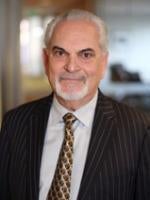In the course of a politically-charged frenzy to eliminate the misclassification of employees as independent contractors, the franchise business model has been trampled without respect by both the courts and the legislature in California, disrupting commercial relationships that have been a vital driver of the state’s economy for more than fifty years. Only five years ago, the California Supreme Court acknowledged the vital importance of franchising to the California economy in generating “trillions of dollars in total sales,” “billions of dollars” of payroll and the “millions of people” franchising employs. Patterson v. Domino’s Pizza, LLC (2014) 60 Cal.4th 474, 489.
Taking into account the “ubiquitous, lucrative, and thriving” franchise business model and its “profound” effects on the economy, the Patterson court held that the usual tests for “determining the circumstances under which an employment or agency relationship exists” could not be applied to franchises. Id. at 477, 489 and 503. To avoid disruption of the franchise relationship and turning the model “on its head,” a different test that took into account the practical realities of franchising had to be applied to franchise relationships. Id. at 498, 499 and 503. The “imposition and enforcement of a uniform marketing and operational plan cannot automatically saddle the franchisor with responsibility.” Id. at 478. A franchisor is liable “only if it has retained or assumed a general right of control over factors such as hiring, direction, supervision, discipline, discharge, and relevant day-to-day aspects of the workplace behavior of the franchisee’s employees.” Id. at 497-98. The special rule for franchising has been commonly referred to as the “Patterson gloss.”
On September 25, 2019, a panel of the Ninth Circuit Court reinstated an opinion it had previously published on May 2, 2019, then withdrew on July 22, 2019, recklessly undermining the delicate framework of the franchise business model in derogation of the California Supreme Court’s “Patterson gloss.” Vazquez v. Jan-Pro, 923 F.3d 575 (9th Cir. May 2, 2019), opinion withdrawn, 2019 US App. Lexis 21687 (July 22, 2019), opinion reinstated, 2019 BL 357978 (9th Cir. September 24, 2019).
The “Patterson gloss” arose from the California Supreme Court’s subtle appreciation for the historical development of the franchise business model. At the heart of all franchise relationships is a trademark license. At common law, trademark licenses were seen as a representation to the public of the source of a product. An attempt to license a trademark risked the forfeiture of any right to royalties and the abandonment of the licensed mark. See Lea v. New Home Sewing Mach. Co., 139 F. 732 (C.C.E.D.N.Y. 1905); Dawn Donut Co. v. Hart’s Food Stores, Inc., 267 F.2d 358, 367 (2d Cir. 1959).
Although the Trademark Act of 1905 did not allow for the licensing of trademarks, the Trademark Act of 1946, the Lanham Act, 15 U.S.C. § 1051, did allow a trademark to be licensed, but only where the licensee was “controlled by the registrant. . . in respect to the nature and quality of the goods or services in connection with which the mark is used.” 15 U.S.C. § 1127. After the passage of the Lanham Act, a trademark could be licensed, as long as “the plaintiff sufficiently policed and inspected its licensees’ operations to guarantee the quality of the products they sold under its trademarks to the public.” Dawn Donut, at 367. After the Lanham Act had legitimized trademark licensing, the franchise model began to emerge in the 1950s, as the Patterson court noted (at 489), leading to the explosive growth of franchising over the last seven decades.
“Franchising is a heavily regulated form of business in California.” Cislaw v. Southland Corporation (1992) 4 Cal.App.4th 1284, 1288. Franchisors must provide prospective franchisees with detailed pre-sale disclosure documents under the California Franchise Investment Law, Corporations Code § 31000 et seq. and the FTC Rule, 39 Fed. Reg. 30360 (1974). There are criminal, civil and administrative consequences for failure to comply. Franchisees’ rights are protected by the California Franchise Relations Act, Business & Professions Code § 20000, et seq., which includes recently enhanced penalties for non-compliance.
Over the years, California courts have acknowledged the fundamental obligation of franchisors to impose controls over their licensees and have uniformly held that such controls do not create an employment or agency relationship. See, e.g., Cislaw, 4 Cal.App.4th at 1295 (the owner of a brand may impose restrictions on a licensee “without incurring the responsibilities or acquiring the immunities of a master, with respect to the person controlled.”); Kaplan v. Coldwell Banker (1997) 59 Cal.App.4th 746, (“If the law were otherwise, every franchisee who independently owned and operated a franchise would be the true agent or employee of the franchisor.”). This doctrine came to be known as the “Patterson gloss” and is the glue that holds the franchise business model together—allowing the franchisor to exert the controls necessary to license a trademark without incurring the responsibilities of an employer.
In its September 25, 2019 decision in Vazquez, the Ninth Circuit once again discarded the Patterson gloss like an extra part found in the bottom of an Ikea box after the hasty assembly of an end table. According to the Vazquez court, Patterson had no relevance because it was just a vicarious liability decision, not an employment decision. But Patterson was an employment case.
Patterson was a Fair Employment and Housing claim brought by a teenage girl after her supervisor had repeatedly groped her breasts and buttocks. Patterson, at 479. It is hard to understand why the Vazquez court considered the wage order claims before it to be more significant than Taylor Patterson’s right to pursue legal claims for sexual harassment.
Even more disturbingly, the Vazquez court disregarded the “Patterson gloss” because Dynamex [Dynamex Operations West, Inc. v. Superior Court of Los Angeles (2018) 4 Cal.5th 903] had favorably cited two Massachusetts decisions that applied the ABC test in the franchise context. Id. at 39. The Massachusetts cases were cited in Dynamex only as examples of cases where it had been more efficient to address “the latter two parts of the [ABC] standard” on a dispositive motion, rather than all three prongs. Dynamex, 4 Cal.5th at 48. The court never mentions franchising or the inconsequential fact that the parties in cited cases were franchises. The Dynamex court could not be fairly understood to have abandoned its stalwart embrace of the franchise business model in its 2014 Patterson decision, without ever bothering to mention the case or to make any reference to franchising. Yet the Vazquez court concluded that a passing citation to cases that happened to involve franchise companies in the Dynamex opinion—to make a procedural point that was unrelated to franchising in any way—was an occult signal from the California Supreme Court that the “Patterson gloss” had been abandoned by implication five years after its creation.
Nor was it valid for the Vazquez court to confine the “Patterson gloss” to vicarious liability cases. As Witkin points out, California law on vicarious liability and employment developed together, so that most “of the rules relating to duties, authority, liability, etc. are applicable to employees as well as other agents.” Witkin, Summary of California Law (10th ed., Agency & Employment, § 4). The core obligation to control a trademark licensee—hard-wired by the Lanham Act into every franchise relationship—must be respected in both vicarious liability and employment cases if the franchise business model is to be preserved.
The Vazquez court had it right when it withdrew and de-published its original decision on July 22, 2019. When the court certified the retroactivity issue to the California Supreme Court that day, it could have also certified the franchise issue back to the court that created the Patterson gloss, but it did not do so. Franchisors are now left to wonder how they are to maintain existing long-term commercial relationships and to continue to sell franchises after the Vazquez opinion has taken from them the fundamental right to license trademarks without incurring the unintended liabilities of employers.




 />i
/>i

